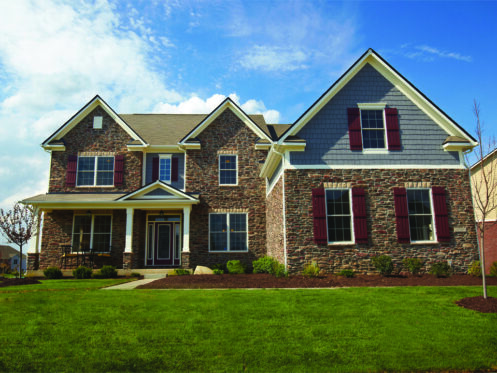Incorrectly Sized Pipes Can Cause You Backup Problems
At some point, every homeowner will most likely encounter a plumbing problem, such as leaky pipes or a clogged drain. While some homeowners are comfortable making minor plumbing repairs themselves, there are certain plumbing issues — including major repairs and installations — that are best left to professional plumbers.
When it comes to plumbing problems, what you don’t know can come back to haunt you. Here’s a look at some of the most common plumbing mistakes homeowners make:
Not following the law.
There are strict codes governing how plumbing should be installed, and for larger projects, a permit may be required. Failure to comply with local code restrictions can cause problems down the line — not to mention potentially compromising the integrity of your plumbing system. Most professional plumbing services know these rules inside and out, but homeowners often do not. Make sure to do your homework before taking on any DIY plumbing projects.
Using the wrong size pipes.
Drainage pipes, in particular, require fairly precise pipe measurements based on the size of the waste material and the amount of water the plumbing fixture is meant to handle. If the pipe is too small, the drain can become clogged easily; too large, the line will not scour and clear itself properly. Make sure you have a clear understanding of the size of the pipe required before tackling a plumbing problem or repair. Proper pipe sizing for water lines is essential, too. If the pipe diameter feeding a room or a fixture is too small, there will be diminished flow and the fixtures will not run correctly (especially showers).
Using mismatched pipes.
Another common mistake homeowners make is trying to connect two pipes that don’t fit together, either because they are dissimilar in material or size. Whenever you’re joining two pipes, it’s important to make sure that the right transition fittings are used and that the pipes should be connected. An example of a common mistake is connecting a galvanized pipe directly to a copper one. When placed together, these two metals will quickly corrode — often resulting in leaky pipes or a failed union. Homeowners should place a dielectric or brass fitting between galvanized metal and copper plumbing materials.
Using too much drain cleaner.
When used properly, a commercial drain cleaner can be effective against certain types of clogs. However, when the first use fails to produce a result, many homeowners continue throwing drain cleaners at the problem. Excessive drain cleaner use can cause additional plumbing problems, such as pipe corrosion, and can even make the clog even worse. For tough clogs, it’s best to call in a professional plumbing service.
Forgetting to disconnect the garden hose in the winter.
Leaving a garden hose connected to an outdoor spigot can cause the sillcock or the water supply to freeze. A pipe that freezes and bursts can cause catastrophic flooding and water damage.
Leaving threaded joints unsealed.
Those threaded joint connections on sinks, water heaters, shower heads, and other fixtures are a nice convenience for homeowners since they don’t need to be soldered together. However, simply screwing the parts together isn’t enough – all threaded joints should be sealed with plumbing tape and a pipe compound to prevent leaky pipes. Wrap a good amount of tape around the threads of the male connector, apply the thread sealer (aka ‘pipe dope’), and then tighten the adjoining piece. The tape and dope help create a water-tight seal.
Failing to level fixtures during installation.
This is particularly important with sink bowls and toilets. All parts of a sink bowl should be level, and homeowners ought to ensure the toilet is squarely lined up with the wall.
Not flushing water lines when turning the water back on.
Anytime you turn the water to your home back on, it’s important to flush all of the fixtures in the home to remove air from the lines. We like to first open the outside hose valve to flush debris and other contaminants from the pipes. Once these lines have been flushed, we systematically flush out the other sink faucets, shower valves, and toilets in the home to remove air and other possible debris from the lines. In older homes with galvanized piping, debris in the line can be a nagging problem when the water is shut on or off as the lines are repeatedly serviced.
Fixing plumbing problems too hastily.
Using a quick fix to remedy a plumbing problem is a common blunder that can lead to bigger problems. For example, in the rush to fix a plumbing problem, because guests are expected, it’s easy to accidentally omit important steps, like shutting off the water. Consequently, homeowners learn the hard lesson that plumbing problems are best repaired with a calm mind.
The plumbing system in a home survives as well as the homeowner treats and maintains it. Homeowners can prevent many plumbing problems by using common sense, being patient, and knowing when professional plumbing services are required before a minor problem gets out of hand. Call 3 Mountains Home Services today.


